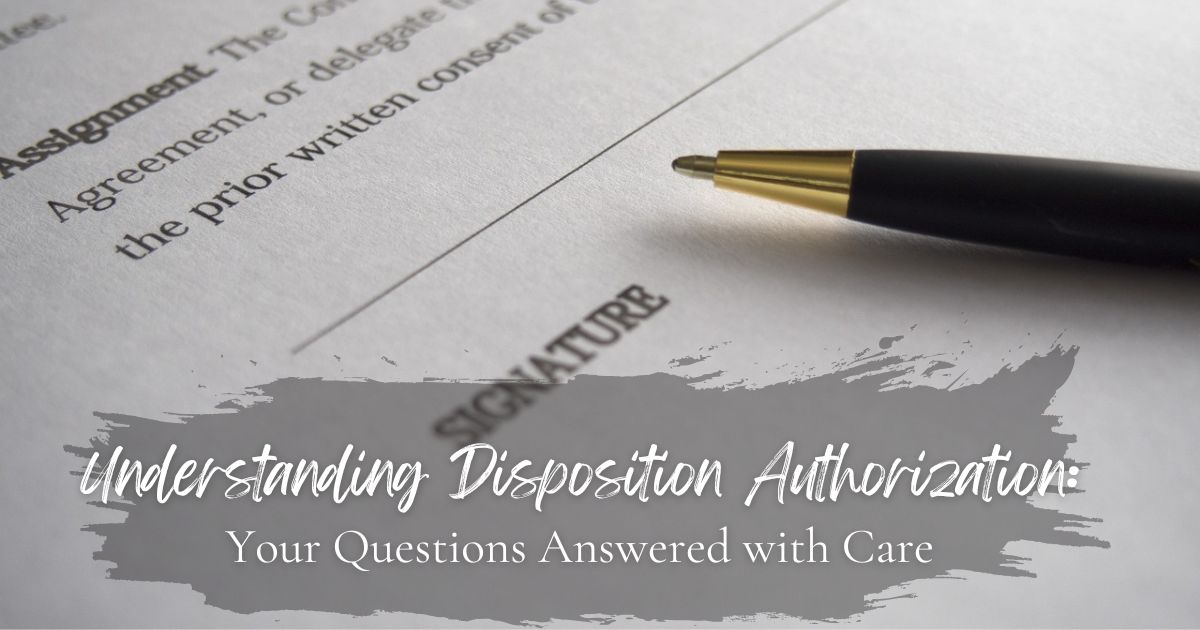
Losing a loved one comes with countless decisions—some expected, others catching us by surprise. One term you might encounter during funeral arrangements is "disposition authorization." While it sounds formal, it simply refers to the legal permission needed to carry out final wishes, whether burial, cremation, or another option. If you're feeling overwhelmed by paperwork during this emotional time, you're not alone. Here's what you need to know, explained with compassion.
What Is Disposition Authorization?
Disposition authorization is the official approval required before a funeral home or crematory can proceed with final arrangements. Think of it as a legal "green light" that ensures everything is done respectfully and according to the family's—or the deceased's—wishes. Without it, the process cannot move forward.
Who Can Grant Permission?
Laws vary by state, but generally, the next of kin (spouse, adult children, parents, or siblings) is responsible for signing the authorization. If your loved one pre-planned their funeral and designated someone as their legal representative, that person may have the authority instead.
In cases where family members disagree, the process can become more complicated. Funeral directors are trained to help navigate these sensitive situations with patience and care.
What Information Is Required?
When filling out the authorization form, you’ll typically need to provide:
-
The deceased’s full legal name and date of birth
-
The chosen method of disposition (burial, cremation, etc.)
-
The name of the cemetery or crematory (if known)
-
Your relationship to the deceased
Some states also require a waiting period before cremation, or additional permits if the body will be transported across state lines.
Why This Matters More Than Paperwork
It’s easy to feel weighed down by legalities when your heart is grieving. But disposition authorization isn’t just bureaucracy—it’s a final act of love. By ensuring everything is properly documented, you’re protecting your loved one’s wishes and preventing delays or disputes during an already difficult time.
A Gentle Reminder: You Don’t Have to Do It Alone
Funeral directors handle these details every day and can guide you step by step. If you’re unsure about any part of the process, lean on them for clarity. And if signing that form feels like one more painful goodbye, give yourself grace. These small, necessary acts are part of honoring a life that mattered.
In the midst of loss, paperwork can feel impersonal—but what it represents is anything but. However you choose to say goodbye, your care shines through in every decision.





